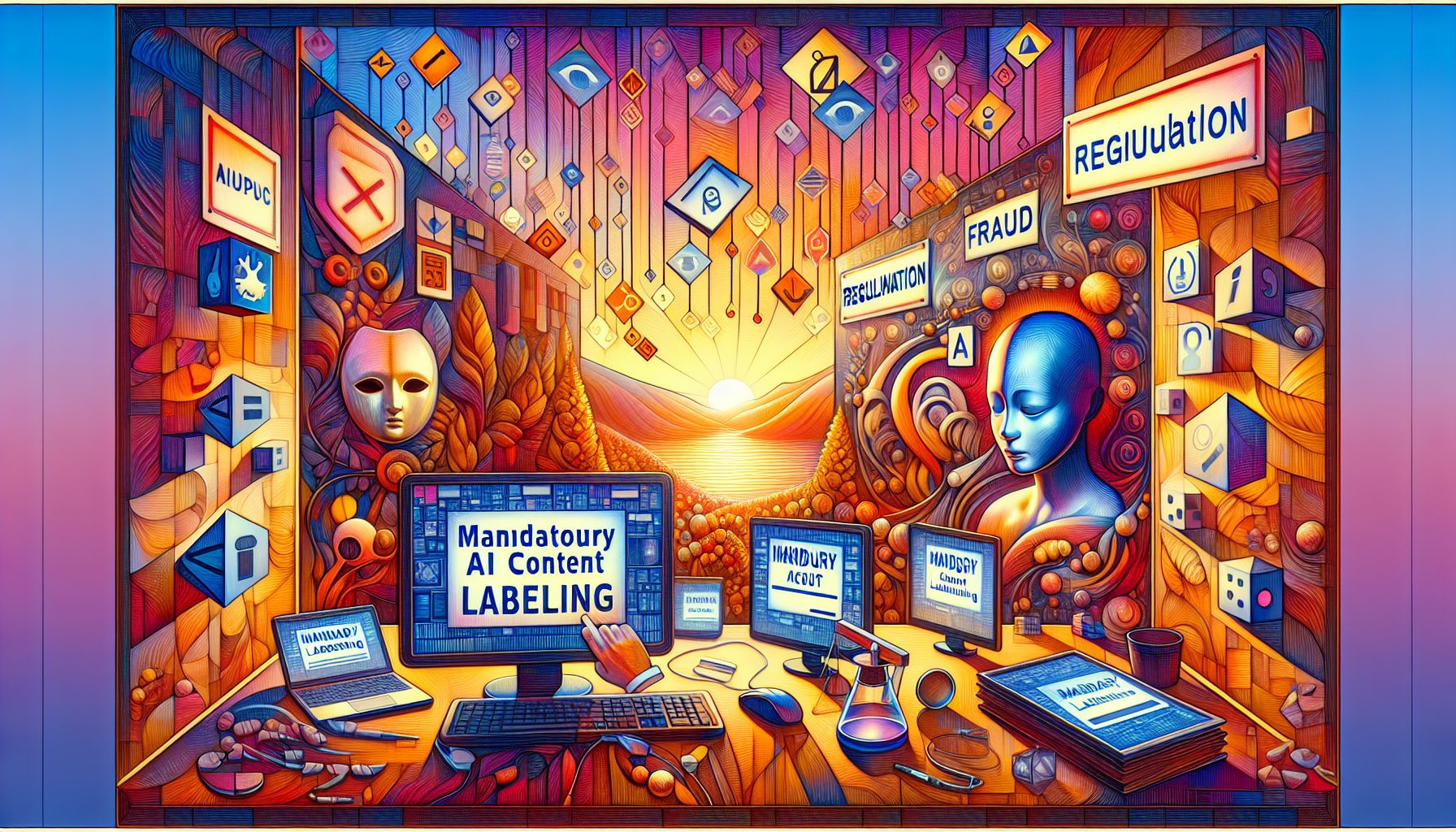China Unveils Plan for Mandatory AI Content Labeling

Beijing, Friday, 27 September 2024.
China’s Cyberspace Administration proposes regulations requiring clear labeling of AI-generated content, including watermarks and metadata. The move aims to combat misinformation and fraud, reflecting a global trend in AI governance. Implementation challenges and industry impact remain to be seen.
A Step Ahead in AI Governance
On September 14, 2024, China’s Cyberspace Administration (CAC) introduced a groundbreaking regulatory framework to mandate the labeling of AI-generated content. This move positions China ahead of the European Union and the United States in the realm of AI content moderation, as noted by Angela Zhang, a law professor at the University of Southern California. The proposed regulations aim to combat the proliferation of AI-generated disinformation by requiring explicit labels such as watermarks and conspicuous notifications, as well as implicit metadata tags that include the initialism ‘AIGC’ (Artificial Intelligence-Generated Content)[1].
The Mechanics of AI Watermarking
The draft regulations mandate that AI-generated images, videos, and audio must include visible watermarks and embedded metadata at the time of creation. For AI-generated videos, notices must be displayed at the beginning, end, and at ‘appropriate’ times throughout the video[2]. Social media platforms are tasked with detecting AI-generated content and tagging it based on metadata or user disclosure, creating both legal and operational challenges for compliance[3].
Global Influence and Local Challenges
Jeffrey Ding, an assistant professor at George Washington University, pointed out that Chinese policymakers drew inspiration from the EU’s AI Act. However, China’s approach is more targeted, focusing on specific applications such as recommendation algorithms and deepfakes, rather than a comprehensive horizontal regulation[4]. The regulation is open for public feedback until October 14, 2024, with the potential for delays before final enactment[1].
Industry Reactions and Economic Impact
The introduction of mandatory AI labeling has elicited mixed reactions from industry stakeholders. Sima Huapeng, CEO of Silicon Intelligence, noted that making AI labeling compulsory would compel companies to implement it, thereby increasing operational costs[1]. Matt Sheehan, a fellow at the Carnegie Endowment for International Peace, observed that the CAC is shifting towards a more business-friendly regulatory stance, balancing content control with the need to foster AI innovation and economic development[4].
Balancing Regulation and Innovation
Despite some easing of regulations, the CAC remains heavily involved in testing AI models and adjusting content standards regularly. Experts like Sam Gregory, executive director of Witness, caution that while interoperable standards for metadata are essential, they must not compromise user privacy or freedom of expression[1]. The challenge lies in ensuring that these regulations do not stifle innovation while effectively curbing the spread of AI-generated misinformation[4].

